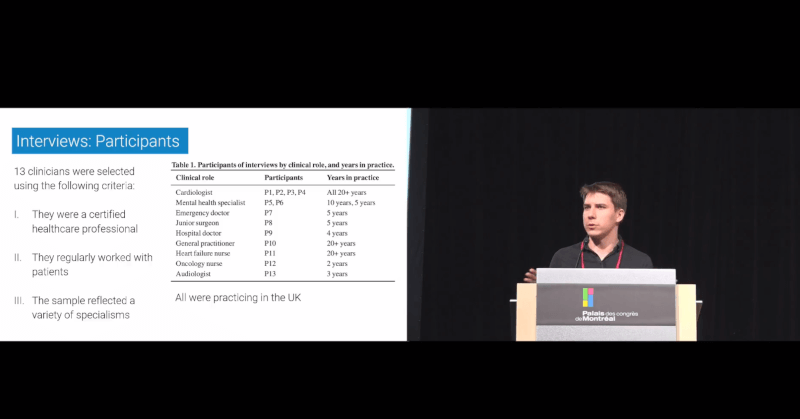
Three of our team members have just presented their research at the Conference on Human Factors in Computing in Montreal. The paper looked at the possible challenges that doctors might face when using patient-generated health data, and how we could overcome those challenges.
Watch: Peter presents his research at Montreal
Patient-generated data, such as data from wearable fitness trackers and smartphone apps, are viewed as a valuable information source towards personalised healthcare. However, studies in specific clinical settings have revealed diverse barriers to their effective use. In this paper, we address the following question: are there barriers prevalent across distinct workflows in clinical settings to using patient-generated data? We conducted a two-part investigation: a literature review of studies identifying such barriers; and interviews with clinical specialists across multiple roles, including emergency care, cardiology, mental health, and general practice. We identify common barriers in a six-stage workflow model of aligning patient and clinician objectives, judging data quality, evaluating data utility, rearranging data into a clinical format, interpreting data, and deciding on a plan or action. This workflow establishes common ground for HCI practitioners and researchers to explore solutions to improving the use of patient-generated data in clinical practices.
Peter West, Max Van Kleek, Richard Giordano, Mark J. Weal, and Nigel Shadbolt. 2018. Common Barriers to the Use of Patient-Generated Data Across Clinical Settings. In Proceedings of the 2018 CHI Conference on Human Factors in Computing Systems (CHI '18). ACM, New York, NY, USA, Paper 484, 13 pages. DOI: https://doi.org/10.1145/3173574.3174058
Read the paper here